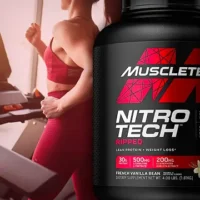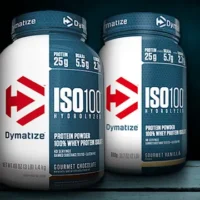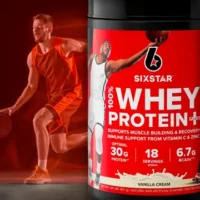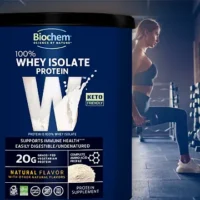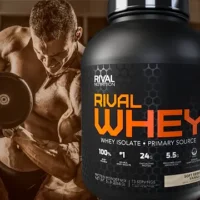BACK
High protein sources for vegans
Veganism is growing worldwide and provides a healthy ethically sound diet. So how can a vegan get all the protein they need?
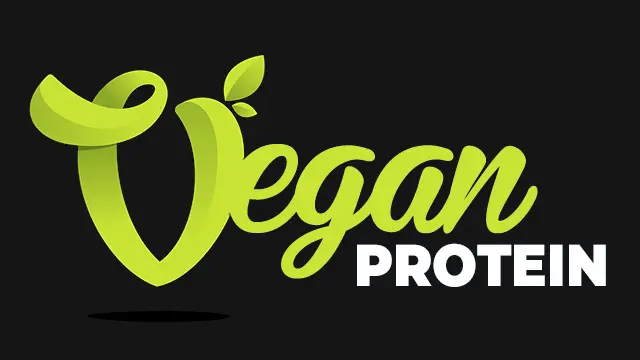
There is a lot of concern over whether eating a wholly plant-based diet will provide enough protein, although this is a myth that can be laid safely to rest.
Athletes and individuals all over the world are proving that it is entirely possible to be healthy and fit with a vegan diet, and protein deficiency isn’t a problem at all.
Athletes and individuals all over the world are proving that it is entirely possible to be healthy and fit with a vegan diet, and protein deficiency isn’t a problem at all.
DO PLANTS REALLY CONTAIN PROTEIN?
Yes! Every food available actually contains some level of protein, although the amount of protein varies. Fruit contains fairly low quantities, whereas root vegetables and whole grains provide more. Even higher levels are found in lentils, legumes, nuts, and seeds.
Most plants contain different varieties of amino acids; the small building blocks that join to create a whole protein. The body is remarkably good at storing and combining these amino acids, so it is also possible to obtain all the essential amino acids from eating a variety of plant-based foods.
Most plants contain different varieties of amino acids; the small building blocks that join to create a whole protein. The body is remarkably good at storing and combining these amino acids, so it is also possible to obtain all the essential amino acids from eating a variety of plant-based foods.
THE BEST VEGAN PROTEINS
With so much variety in the plant kingdom, there are multiple choices when it comes to vegan protein sources. Below is a selection of some reputable plant-based foods, which will ensure you get all the protein you need.
If you’re an athlete or a highly active person, you can always use a good quality plant protein powder to supplement these foods. The choice is huge now, and proteins such as pea, rice, hemp, or organic soy are all available.
If you’re an athlete or a highly active person, you can always use a good quality plant protein powder to supplement these foods. The choice is huge now, and proteins such as pea, rice, hemp, or organic soy are all available.

BLACK BEANS
Coming in at 15g of protein per cup, these fiber-rich powerhouses contain iron and magnesium - perfect for workout recovery. Kidney beans and pinto beans aren’t that far behind and are great alternatives to the humble black bean.
Protein
15
protein / cup

BROCCOLI
This green vegetable contains 4g of protein per cup, somewhat less than other pulses and grains. However, it’s chock-a-block full of Vitamin C, calcium, and B vitamins, making it a very nutritious option. Spinach contains 5g per cup and is also a great source of iron.
Adding these greens to a meal with beans or pulses will increase the protein and nutritional value of what you’re eating.
Adding these greens to a meal with beans or pulses will increase the protein and nutritional value of what you’re eating.
Protein
4
protein / cup

LENTILS
High in B vitamins, fiber and manganese, these little pulses contain a whopping 18g of protein per cup. Immature soy beans, known as edamame, can contain up to 20g of protein per cup, and make delicious snacks.
Most pulses rate highly as protein options, and lentils are incredibly versatile. Dahl, soup, burger patties, and mince can all be made with a lentil base.
Most pulses rate highly as protein options, and lentils are incredibly versatile. Dahl, soup, burger patties, and mince can all be made with a lentil base.
Protein
18
protein / cup

NUTS
Peanut butter, one of the most popular nut products, contains a huge 62% per cup, but we recommend you stick to a couple of tablespoons for a serving.
Although they are high in fat, they are also full of important antioxidants and minerals, and most nuts are a great way to increase protein.
Although they are high in fat, they are also full of important antioxidants and minerals, and most nuts are a great way to increase protein.
Almonds
30
protein / cup
Brazil Nuts
19
protein / cup
Pistachios
25
protein / cup
Walnuts
18
protein / cup

OATS
Containing around 5g protein per cup, oats don’t seem like an obvious choice for protein. It is, however, an excellent source of complex carbohydrates and fiber, and comes with a good dose of B vitamins, iron, and magnesium.
Other good grain options include millet, amaranth, and buckwheat, all around 6g per cup, while brown rice has around 4g of protein. Including any of these grains in a varied diet are a good option for both protein and overall nutrition.
Other good grain options include millet, amaranth, and buckwheat, all around 6g per cup, while brown rice has around 4g of protein. Including any of these grains in a varied diet are a good option for both protein and overall nutrition.
Protein
5
protein / cup

QUINOA
This seed is unusual in that it behaves as a grain and contains all the essential amino acids. It’s particularly high in lysine, which makes it great for muscle growth.
Quinoa contains 8g of protein per cup, and being quite a light food, can easily be mixed with other grains or root vegetables.
Quinoa contains 8g of protein per cup, and being quite a light food, can easily be mixed with other grains or root vegetables.
Protein
8
protein / cup

SOY
If it’s good enough to feed livestock, it’s good enough to feed humans! Soy is traditionally cooked and fermented, and an organic, non-genetically modified bean can be a great source of protein.
Soy can be found in several forms, but milk, tofu, or tempeh are the most common options. Tempeh may contain around 30g per cup, tofu 20g, and soy milk may contain around 8g.
Soy can be found in several forms, but milk, tofu, or tempeh are the most common options. Tempeh may contain around 30g per cup, tofu 20g, and soy milk may contain around 8g.
Protein
30
protein / cup
Carbs
20
protein / cup
Fat
8
protein / cup

SEEDS
Similar to nuts, these nutritional powerhouses contain important minerals along with protein. Pumpkin seeds contain 33g of protein per cup and a good boost of zinc, while sesame seeds hold 25g and high levels of calcium.
Sunflower seeds are much lower at 9g per cup, but that’s still a reasonable dose for a plant-based food.
Chia seeds are notable for their high levels of iron, calcium, and magnesium, and are a great source of omega-3 fats. Two tablespoons of chia seeds will provide around 5g of protein.
While most of these measurements are per cup, you probably wouldn’t eat a whole cup of any seed, so make sure to add a couple of tablespoons to your breakfast porridge, smoothies, or salads for an extra wholesome protein pop.
Sunflower seeds are much lower at 9g per cup, but that’s still a reasonable dose for a plant-based food.
Chia seeds are notable for their high levels of iron, calcium, and magnesium, and are a great source of omega-3 fats. Two tablespoons of chia seeds will provide around 5g of protein.
While most of these measurements are per cup, you probably wouldn’t eat a whole cup of any seed, so make sure to add a couple of tablespoons to your breakfast porridge, smoothies, or salads for an extra wholesome protein pop.
EAT A VARIETY
The human body is very capable of mixing and storing nutrients, and so eating a variety of lentils, legumes, whole-grains, nuts, and seeds is a great way to ensure you get all the amino acids you need for good health.
On top of this, you’ll be eating great levels of fiber, vitamins, and minerals. With a colorful and varied diet, your overall health should be tip-top!
On top of this, you’ll be eating great levels of fiber, vitamins, and minerals. With a colorful and varied diet, your overall health should be tip-top!
Popular Reviews
The content on this site has not been written, reviewed or endorsed by a medical professional. We assume no liability for the misuse of supplements and recommend you review the label of any product, as well as consulting with your health care professional.
We are a participant in the Amazon Services LLC Associates Program, an affiliate advertising program designed to provide a means for us to earn fees by linking to Amazon.com and affiliated sites.
We are a participant in the Amazon Services LLC Associates Program, an affiliate advertising program designed to provide a means for us to earn fees by linking to Amazon.com and affiliated sites.
© 2024 ProteinPowder.com
